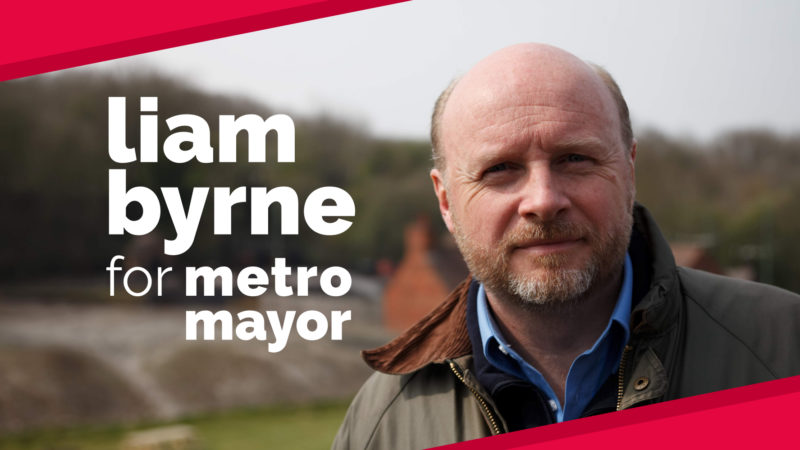
If you were ever in any doubt about the plight and fight of workers trapped in what the IPPR calls not an economic model but our economic muddle, I’ve got some advice. Collect signatures for our real living wage campaign. A fortnight ago, I stood with our team outside Coventry Library with a pop-up table, some tea and petitions, and within minutes was inundated with signatures – and stories.
Stories that were an indictment of 10 years of austerity, which has created a moral emergency. Shop workers who had £25 to live on at the end of the month. Delivery drivers forced to borrow from their boss to make ends meet. Teacher after teacher who stopped by to describe how they feed hungry children in the classroom. Phillip Hammond says he can’t see the poverty, but we can. In our region, we have cranes in the sky, and yet we have homelessness in the doorways. Over half a million people live on less than the real living wage. Over half of the people in poverty are in work.
We cannot go on like this. So today, I’m publishing fifty pages of ideas for change. Not my ideas, but ideas drawn from over a hundred meetings with Labour members and the coalition of compassion that runs our food banks and looks after our homeless neighbours. The moral anger is clear. Members want radical steps to make homelessness history, to licence disgraceful landlords, to adopt the Co-op’s idea of a Food Justice Network to make sure no child ever goes hungry – including through the holidays – and a defence fund to help pay for advocates for people facing loss of disability benefits.
Above all, what shines through is a clear sense that we can’t clear up poverty until we clear out the causes of poverty. Poverty is not inevitable. It is caused by a system that is rotten, which is why we have to change the system. And we’ve not got a moment to lose because while politics might be frozen, the planet is warming – and faster than we thought.
‘System change not climate change’ is the right advice. That’s why our draft manifesto sets out a plan for the region that sparked the carbon revolution to now lead the zero-carbon revolution; a 21st-century industrial revolution that creates good jobs with a sense of craft and vocation, raises wages, builds councils houses people are proud to live in, and ends energy poverty.
For us, that means creating a Green Development Corporation to help channel finance for green council and social houses, which will help wipe out waiting lists. A West Midlands Peoples’ Bank to recycle local savings and help pension funds drive finance into green homes and the green and digital economy. A Nottingham-style West Midlands Green Energy Cooperative to roll out solar and wind on the public estate and finance community-owned renewable power generation. A new Office of Community of Community Wealth Building to coordinate public procurement in the region and help keep spending local. And putting into action Labour’s National Education Service to develop the craft and technical skills we need with a UCAS-style system for apprenticeships.
These changes are significant and difficult to achieve. It will take all hands on deck, a unity of party and purpose to deliver. For these are divided times defined by divisive forces. Our strategic task must be to build a more United Kingdom – and we cannot build unity in the community when we’re divided by fear and hate. We must work around the clock to rebuild the unity of our community with an ambitious plan that will bring people together, reversing Tory cuts to youth services and setting out a bold ambition to become a ‘Region of Sanctuary’.
There is a philosophy to this approach. It is not rolling back the state, but rebuilding the creative state. This is what 21st-century municipal socialism looks like. These days, George Dawson isn’t exactly a household name. But the radical-19th century Birmingham preacher was the driving force behind the ‘civic gospel’ that inspired the invention of municipal socialism. Over a century ago, our region invented the first municipal banks, began the campaigns for free education, and in places like Bournville, pioneered beautiful social housing. This is where it started. This is where we should restart it – a new 21st-century municipal socialism that showcases what Labour in power can deliver.




More from LabourList
Government accepts change to Mandelson document release amid rising backbench pressure
Keir Starmer: ‘I regret appointing Peter Mandelson’ but admits Epstein questions had been raised during vetting
‘For the energy transition to work, it must deliver good union jobs, not just clean power’